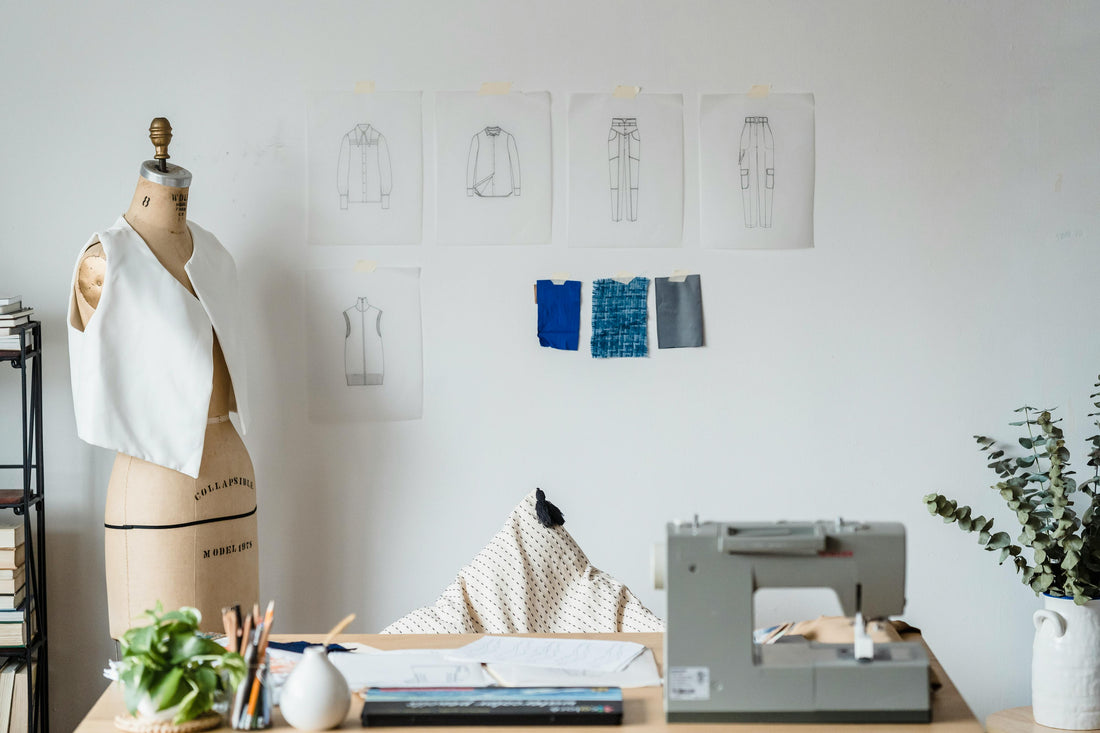
Finding the Best Quality Fabrics for Apparel Manufacturing: A Guide from Merch Farm
Share
In the world of apparel manufacturing, the quality of your fabrics is paramount. It directly impacts the look, feel, durability, and overall wearability of your garments. Here at Merch Farm, a US-based apparel manufacturing company, we understand the importance of using top-notch materials to create clothing that your customers will love. This guide delves into the world of fabrics, helping you navigate the options and choose the perfect ones for your apparel line.
Understanding Fabric Properties
Before diving into specific fabrics, let's explore some key properties to consider:
- Fiber Content: This refers to the makeup of the fabric, whether natural (cotton, wool, linen, silk) or synthetic (polyester, nylon, acrylic). Each fiber offers unique advantages and disadvantages.
- Yarn Count: This indicates the thickness of the yarn used to weave the fabric. Higher counts result in softer, finer fabrics, while lower counts create sturdier, more casual options.
- Weave: The way yarns are interlaced determines the fabric's texture, drape, and breathability. Common weaves include plain weave (think t-shirts), twill weave (denim), and satin weave (dressy fabrics).
- Weight: Fabric weight is measured in grams per square meter (gsm) and affects the garment's structure and warmth. Lighter fabrics are ideal for summer clothes, while heavier ones suit winter wear.
- Finishing: Fabrics can undergo various treatments like dyeing, brushing, or wrinkle-resistance coatings. These alter the fabric's appearance, feel, and performance.
Natural vs. Synthetic Fabrics: Weighing the Options
The classic debate: natural or synthetic? Both offer distinct advantages, and the ideal choice depends on your garment's purpose.
Natural Fabrics:
- Pros: Breathable, comfortable, soft, often hypoallergenic, luxurious (in case of silk), eco-friendly (depending on processing).
- Cons: Can wrinkle easily, prone to shrinkage, may require special care, less durable than synthetics (except linen).
Common Natural Fabrics in Apparel Manufacturing:
- Cotton: A versatile and popular choice, known for its breathability and comfort. Pima cotton offers a particularly luxurious feel.
- Linen: Strong, breathable, and ideal for summer wear. Linen wrinkles easily but softens with washing.
- Wool: Warm, naturally insulating, and wrinkle-resistant. Choose from various weights for different seasons.
- Silk: Luxurious, soft, and drapes beautifully. Requires delicate care.
Synthetic Fabrics:
- Pros: Durable, wrinkle-resistant, easy to care for, often more affordable, offer technical properties (like moisture-wicking for sportswear).
- Cons: Less breathable than natural fabrics, can trap heat, not as eco-friendly (though recycled options are available).
Common Synthetic Fabrics in Apparel Manufacturing:
- Polyester: A versatile and affordable choice, known for its durability and wrinkle resistance.
- Nylon: Strong, lightweight, and water-resistant. Ideal for activewear and rain gear.
- Acrylic: Soft, lightweight, and resembles wool but less expensive. Can be prone to pilling.
Beyond the Basics: Specialty Fabrics
The world of fabrics extends far beyond natural and synthetic staples. Here are some interesting options for specific needs:
- Organic Cotton: Grown without harmful chemicals, a sustainable and eco-conscious choice.
- Tencel (Lyocell): A natural, wood-based fiber known for its softness, breathability, and moisture-wicking properties.
- Modal: A semi-synthetic fiber derived from beech trees, offering a luxurious feel and excellent drape.
- Bamboo Fabrics: Breathable, soft, and naturally odor-resistant. However, true bamboo fabric is often a blend.
Choosing the Right Fabric for Your Garment
Now that you have a better understanding of fabric properties and options, here's how to make informed choices for your apparel line:
- Consider the Garment's Purpose: A breezy cotton t-shirt is ideal for casual wear, while a durable polyester blend might suit a hiking jacket.
- Target Audience: Who are you designing for? Activewear needs will differ from those of business attire.
- Price Point: Fabric cost impacts the final garment price.
- Sustainability: Consider eco-friendly options like organic cotton or recycled synthetics.
Merch Farm: Your Partner in Quality Apparel Manufacturing
At Merch Farm, we understand the importance of using high-quality fabrics to create garments that stand the test of time. We offer a wide range of fabric options to suit your design needs and budget. Our experienced team can guide you through the selection process, ensuring you choose the perfect materials to bring your apparel vision to life.

 100 % Quality & On-Time Guarantee
100 % Quality & On-Time Guarantee